This Affordable Android Phone Puts Flagships With Poor IP Ratings To Shame
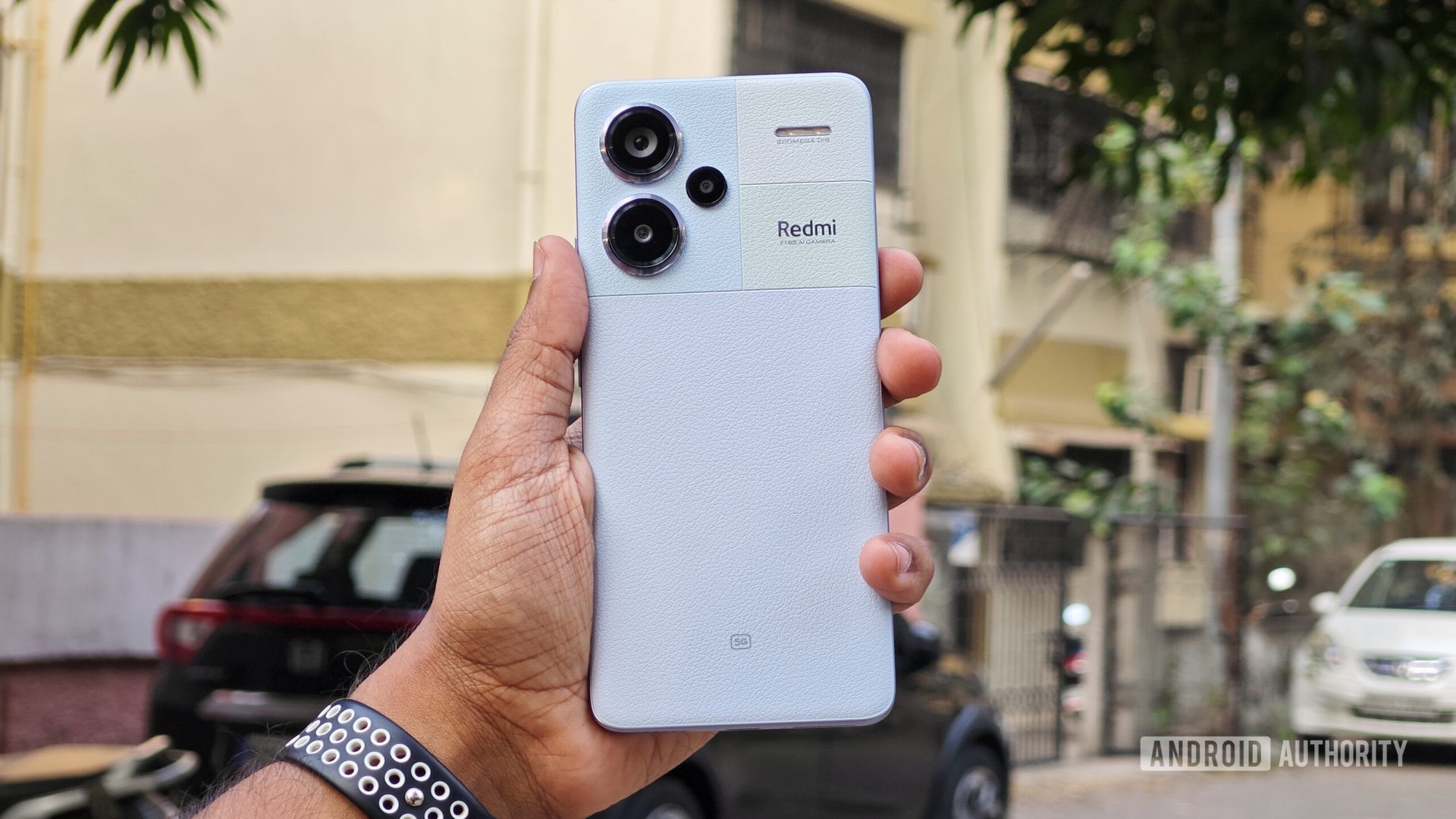
Aamir Siddiqui/Android Authority
One of the hallmarks of an Android flagship is a comprehensive spec sheet that includes all the features users need and want on their phone. We've also seen mid-range Android phones do it pretty well, where it's hard to recommend a $1,000 flagship to users who just want a phone that works, especially when some of the more affordable flagships still do default. Features like wireless charging and IP rating.
Mid-range phones are expected to put pressure on the flagship segment of the market by democratizing premium features and minimizing them. In this regard, the Redmi Note 13 Pro Plus will put other more expensive Android phones to shame.
Redmi Note 13 Pro Plus democratizes water resistance
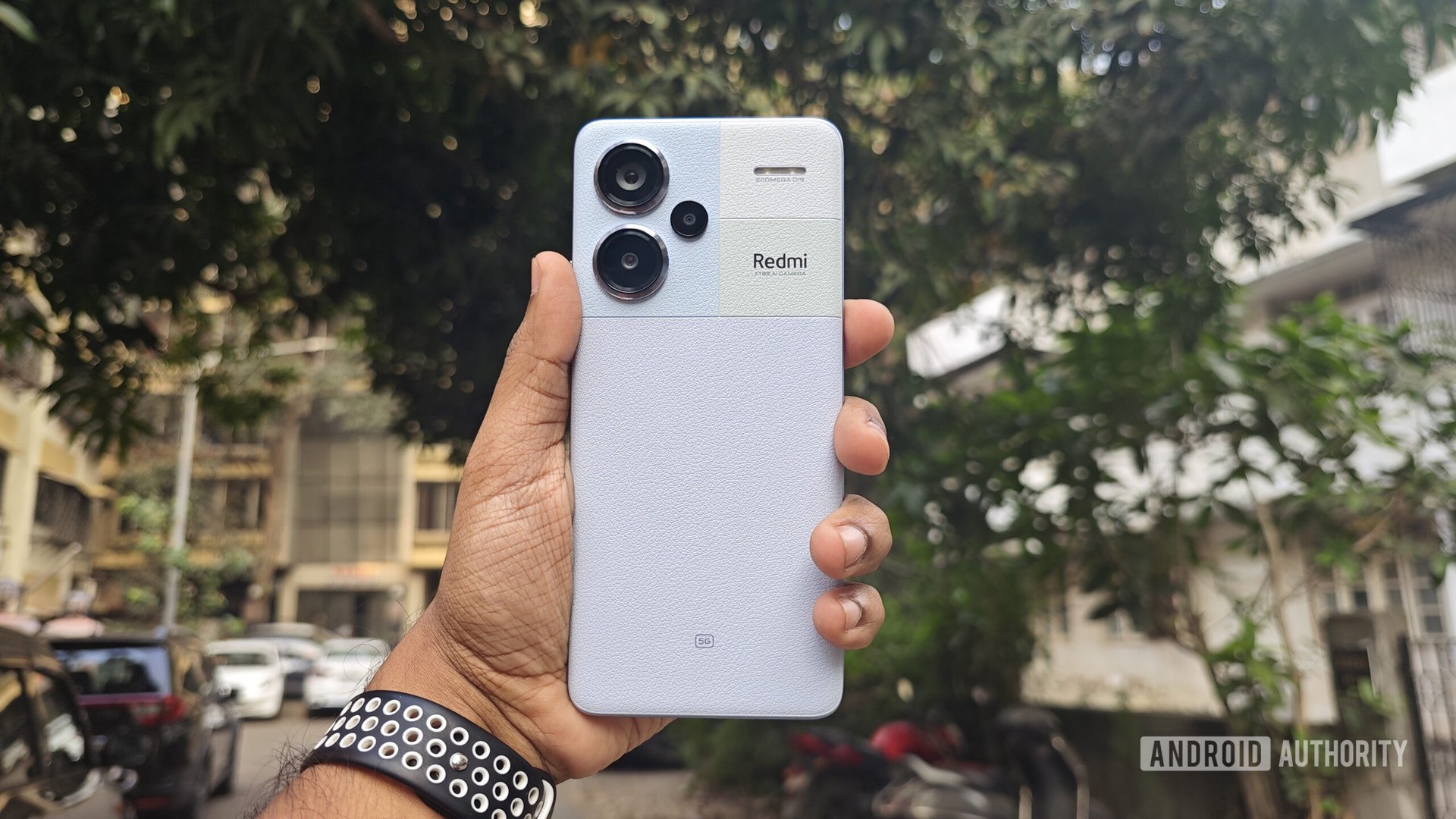
Aamir Siddiqui/Android Authority
One of the main features of the new Redmi Note 13 Pro Plus is the IP68 rating. This is the first phone in the popular Redmi Note series to receive an IP rating, with the Xiaomi sub-brand going straight to IP68.
The IP68 rating means the phone is dust and water resistant, even if it has been submerged in 1.5m (4.9ft) of clean water for up to 30 minutes. However, you should avoid accidentally submerging your phone in water, as water damage is not covered under warranty. But if you get caught in the rain, you can rest assured that your phone will be fine.
IP rating is random on Android. Some phone lines, like Samsung's Galaxy S series, have kept them, while others, like OnePlus' flagship series, have been more controversial. Many phones also have lower ratings, such as the IP67 rating, which protects against temporary immersion in water, and the lower IP65 rating, which only protects against low-pressure water jets. IP54 ratings are also becoming more common at the budget level, even though they only provide a basic level of protection against liquids or dust.
Another downside we noticed is the lack of an IP rating, even though the phone is very water resistant. IP ratings are determined by independent certification agencies and fees are charged for the certification process. You also need to pass the test in the first place, so your product design must take into account the rigor of the test, which can increase costs. The higher the rating, the higher the total cost.
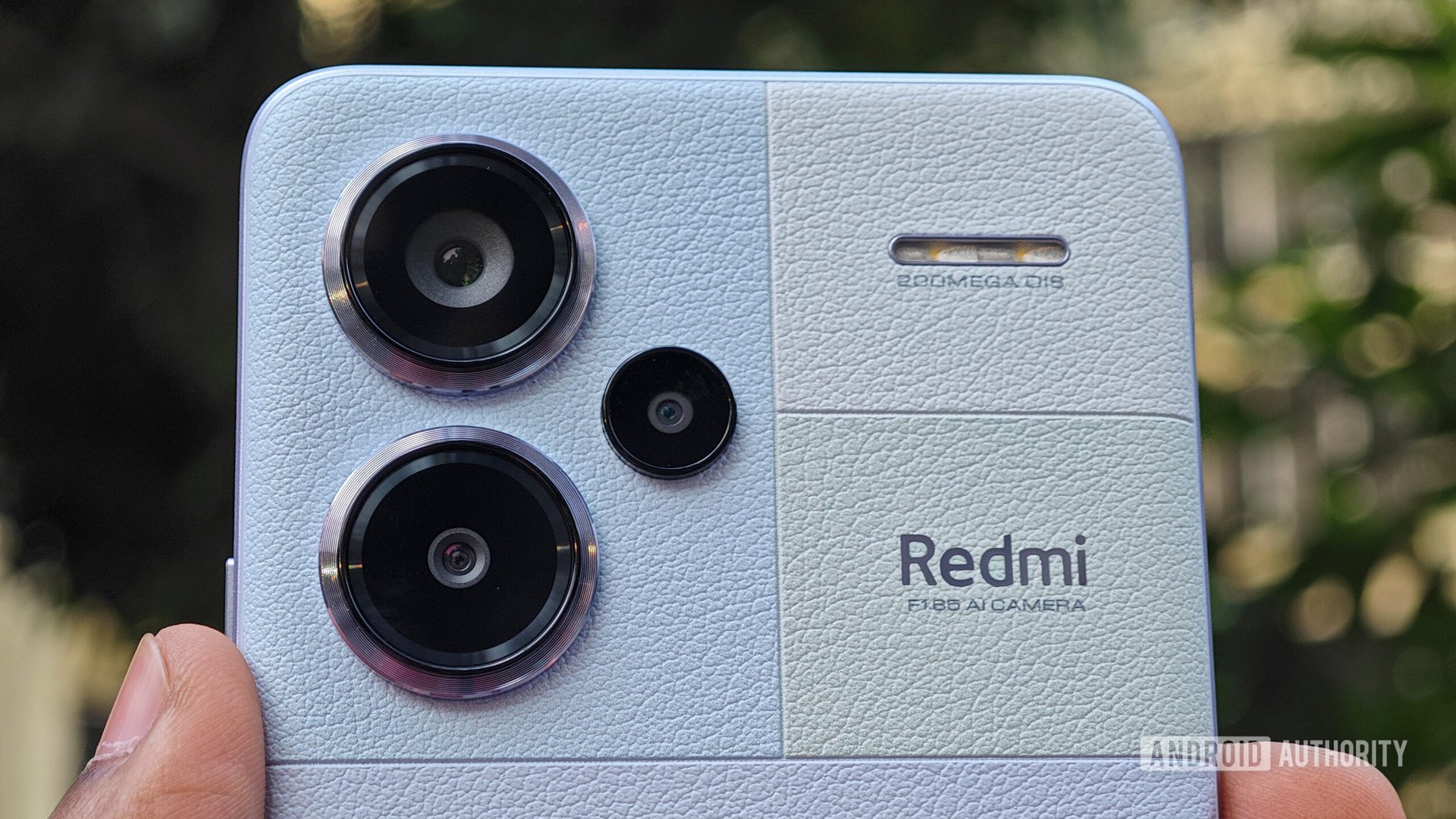
Aamir Siddiqui/Android Authority
With the Note 13 Pro Plus, Redmi is indeed raising the bar. Seasonal rains are common in regions like Europe and Southeast Asia, where the Redmi Note series is very popular. If Redmi can get this mid-range phone to pass high-level certification challenges like water resistance, there's no reason to abandon the flagships. This is a practical application that will benefit more than users' imagination.
If Redmi can certify a mid-range phone with such a high level of water resistance, there is no reason for flagships to miss out.
Devices like the OnePlus 12 come with an IP65 rating in China and the same is expected in the global market. Although the Nothing Phone 2 is not a high-end flagship, it has a low IP54 rating. All that pales in comparison to the IP68, and the Redmi Note 13 Pro Plus costs a fraction of what you'll pay for the best flagships in 2024.
The Redmi Note 13 Pro Plus is also a great mid-range Android phone
IP68 is not the only feature of this phone. Redmi Note 13 Pro Plus comes with a radical redesign, a curved display, a capable processor and much more. is a major upgrade to the Redmi Note series. I've been using this phone for two weeks and it's been a good experience despite Redmi's usual caveats.
The display of the Redmi Note 13 Pro Plus is one of its strong points, as it completely sets the phone apart from flagships with curved displays. This is a bright display with 1,200 nits of total brightness on auto-brightness and 1,800 nits of brightness for HDR content. Gorilla Glass Victus protection is the icing on the cake.
The design of the Redmi Note 13 Pro Plus shows Xiaomi's premium ambitions with this product line.
The design of the phone is also attractive. It doesn't look like last year's Redmi Note and the purple vegan leather collage on the back should get people interested in this phone. At 199g for this variant, it's a fairly well-balanced phone that's solid in the hand without being too heavy. It's truly an incredible phone and probably the most premium Redmi Note yet.
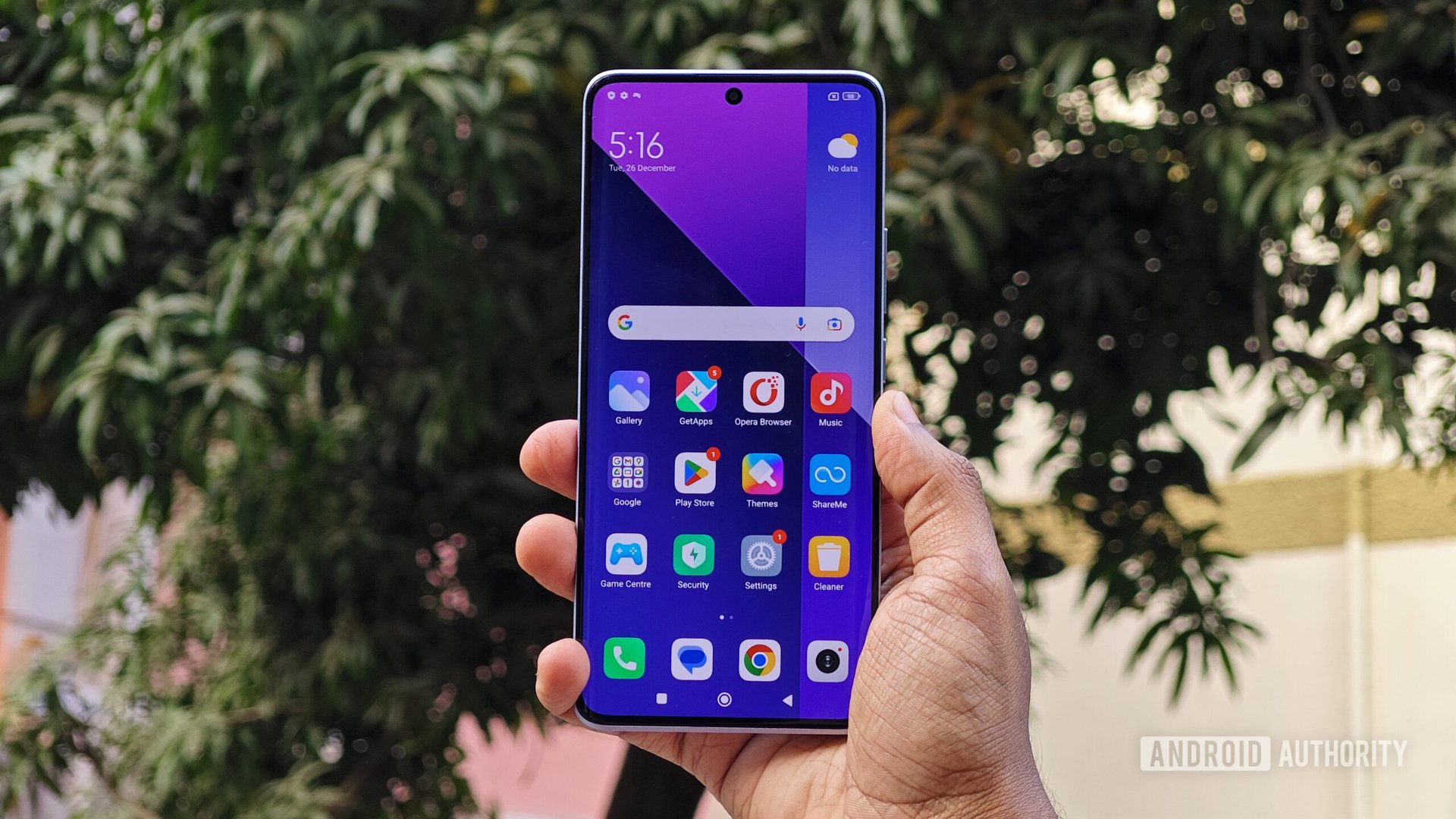
Aamir Siddiqui/Android Authority
The Redmi Note 13 Pro Plus Dimension 7200-Ultra is a practical system-on-a-chip (SoC). It has two Cortex-A715 cores clocked at 2.8 GHz and six Cortex-A510 cores clocked at 2 GHz. The setup works well for everyday tasks and I haven't encountered a situation where I felt the need for a more powerful SoC. If you want to play at the highest settings, you'll need a more powerful chip, but casual gamers won't find reason to complain.
Redmi Note 13 Pro Plus has a 5,000mAh battery that ensures smooth operation throughout the day. It supports 120W fast charging with an included USB A-to-C charger. Redmi claims a full charge in 19 minutes, but in my experience a full charge takes 30-35 minutes, even with "fast charging" enabled.
But everything is not perfect
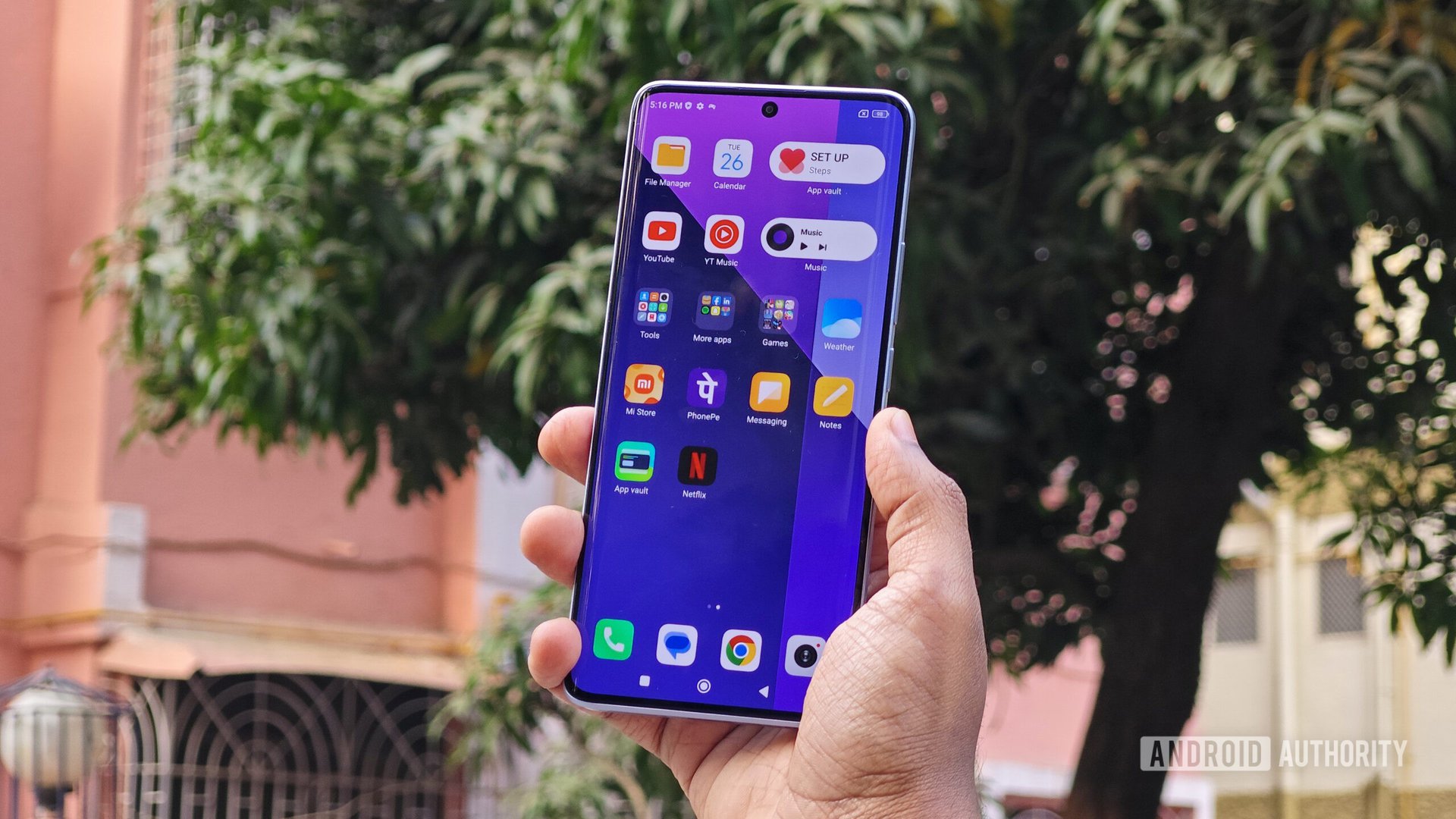
Aamir Siddiqui/Android Authority
The Achilles heel of Xiaomi's mid-range and budget smartphones continues to be an over-reliance on software monetization components in regions like SEA, especially in countries like India. These include pre-installed apps (i.e. viruses), “offers” (i.e. ads for apps you can install), and some questionable templates that trick users into to accept them.
For example, the MIUI installation process will attempt to obtain your consent for Glance's lock screen and app updates via GetApps, and unsuspecting users might accept it. During the installation process, I accidentally accepted GetApps and ended up with a phone with many games installed. I wiped my phone to confirm and found that the checkmark needed to be removed, this gave a cleaner MIUI experience after installation, so at least it's easy to do. However, the GetApps experience may vary significantly between EU regions.
Above is the MIUI home screen without Google on the newly configured phone. This happens with the aforementioned GetApps installation, which automatically installs a folder full of games. Almost all of the bloat could have been easily removed, but given Xiaomi's high-end ambitions, it shouldn't have been, even for sub-brands.
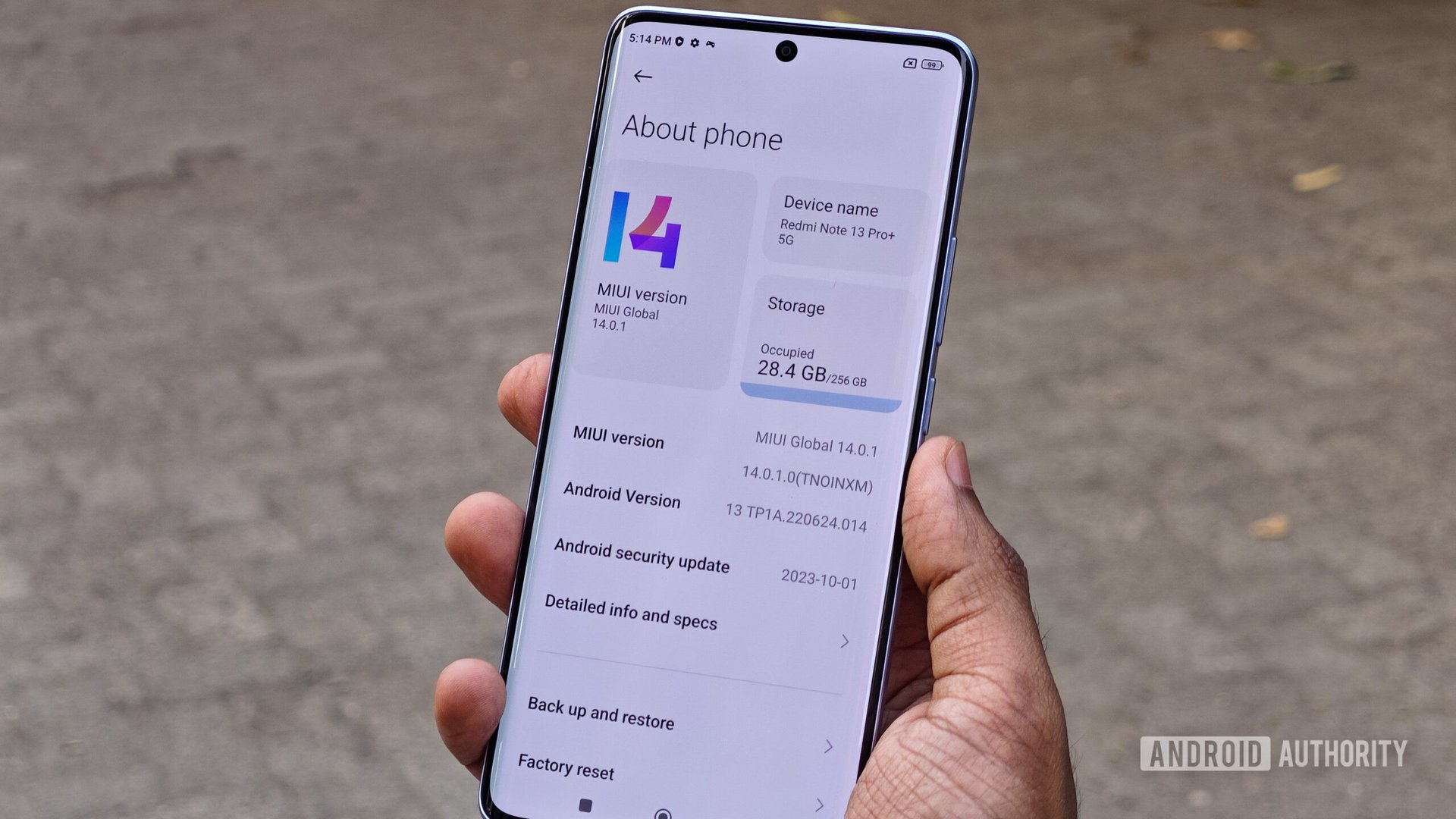
Aamir Siddiqui/Android Authority
Redmi Note 13 Pro Plus launches with MIUI 14 on top of Android 13. Android 14 has been available for months, as has HyperOS. Xiaomi promises at least three generations of Android updates and four years of security updates for this phone. However, while this is a good update policy on paper, it will take a generation of Android updates to catch up with current Android versions.
Redmi Note 13 Pro Plus lacks wireless charging and eSIM connectivity. This will be a great addition to the phone and will solidify it as a device that can truly challenge high-end flagships.
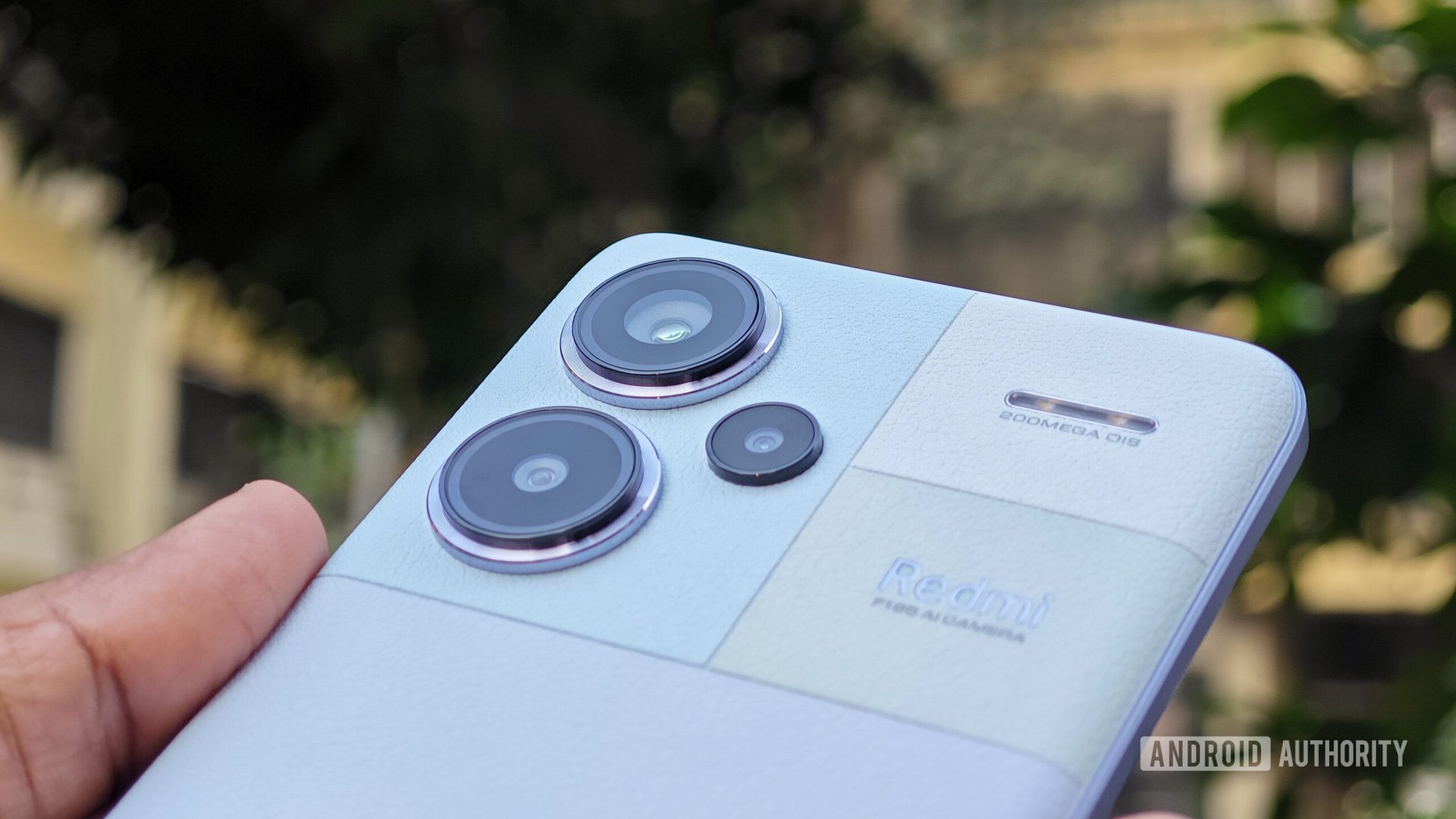
Aamir Siddiqui/Android Authority
Additionally, Redmi Note 13 Pro Plus has a 2-megapixel macro camera. In my testing, the 2MP macro camera adds no real benefit to the user experience and is negligible.
Redmi Note 13 Pro Plus specifications
| Redmi Note 13 Pro Plus | |
|---|---|
to show | 6.67-inch Super AMOLED |
processor | MediaTek Dimension 7200-Ultra |
AZP: | 8GB, 12GB LPDDR5 |
storage | 256 GB, 512 GB UFS 3.1 |
Battery and charging | 5000 mAh battery |
Camera | Back. - 200MP main aperture ƒ/1.65, pixel 0.56 µm, OIS - Ultra wide 8 MP - 2MP Macro Before. |
hearing | Stereo speakers |
security | Fingerprint on screen |
Raincoat | IP68 |
communication | Wi-Fi6: |
Software | MIUI 14 based on Android 13 |
The subjects | Gorilla Glass before Victus |
Dimensions and weight | 161.4 x 74.2 x 8.9mm |
Color | Fusion Black, Fusion White, Fusion Purple |
Redmi Note 13 Pro Plus price and availability
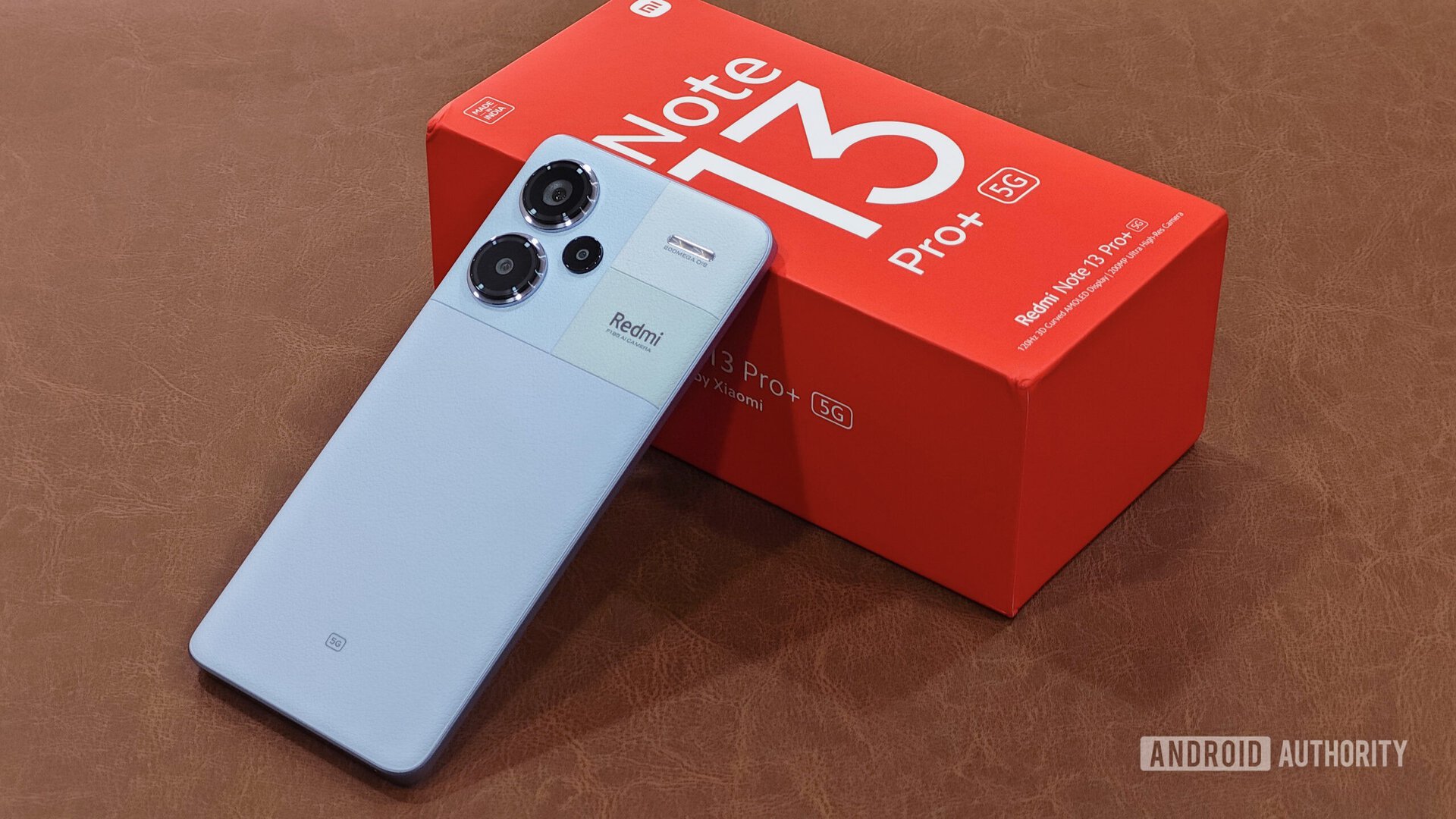
Aamir Siddiqui/Android Authority
- 8GB/256GB: Rs 31,999 (~$384)
- 12GB/256GB: Rs 33,999 (~$408)
- 12GB/512GB: Rs 35,999 (~$432)
The Redmi Note 13 Pro Plus has been launched in India and will go on sale from January 10, 2024 via Mi.com, Flipkart and offline stores. The phone will also go on sale worldwide on January 15, 2024.
The Redmi Note 13 Pro Plus continues to deliver a solid spec sheet and quality experience at a surprisingly affordable price.
Yes, although it is quite an “expensive” Redmi Note, it has enough power to survive in a highly competitive market like India. Xiaomi may have a hard time convincing users to consider the Redmi Note as a premium phone, but it's a battle the brand has been fighting for a few years now, and MIUI's monetization tactics are exacerbating the problem. If you can clean up the MIUI monetization (which is pretty easy to do), it's a great phone that could be a flagship while still costing quite a bit.
For a phone under $400, you get more than you pay for.
For tropical countries like India, where it rains a lot throughout the year, the IP68 rating is a godsend and you don't need to spend a fortune to enjoy this privilege and peace of mind. spirit.





![Androids Upcoming ESIM Transfer Feature Will Be Based On QR Codes [Gallery]](http://img.youtube.com/vi/CpLxFYELzjM/default.jpg)


